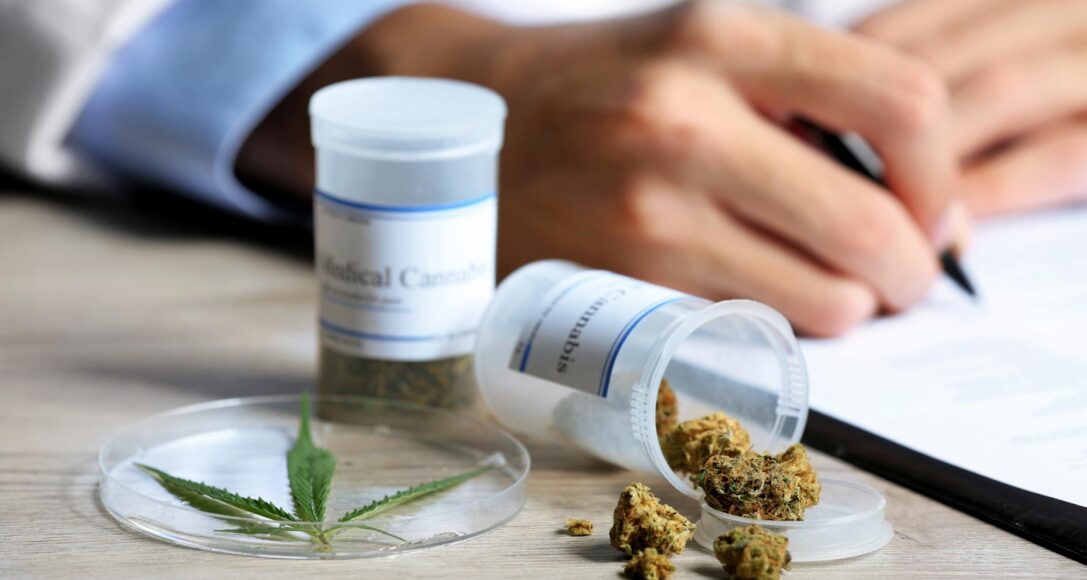Cannabis And Its Role In Managing Chronic Diseases
Hello and welcome! It’s no secret that the term ‘cannabis’ has been doing the rounds in our everyday conversations more than ever before. It’s like a song that’s hit the top of the charts, especially in the world of health and wellness. Now, you’re probably wondering what’s true and what’s just hype. That’s exactly where we come in.
In this enlightening journey, we’re going to dive deep into the undercurrents of the burgeoning body of scientific research that points towards a significant role for cannabis in taming the beast that is a chronic disease. Along the way, we’ll uncover the benefits and risks, and we’ll even take a little detour to discuss its legal standing, with a spotlight on Alabama. So, sit tight, and let’s set sail!
The Behind-The-Scenes Science

Cannabis can be compared to an intricate jigsaw puzzle with over 100 distinctive pieces, each representing a unique cannabinoid. These cannabinoids, the likes of THC and CBD, hold the keys to the influence cannabis exerts on our bodies. Just like a key fits into a lock, cannabinoids have a unique ability to mimic compounds that our bodies naturally produce and interact seamlessly with our endocannabinoid system.
Imagine this system as the orchestra conductor of our body’s physiological balance or homeostasis, playing a key role in everything from how we feel pain to our appetite levels.
This inevitably brings up the key issue: how does cannabis fit into the larger picture of chronic illness management?
Researchers from all across the world have been attempting to piece this together, and what they have so far discovered is pretty encouraging. According to a growing body of research, cannabinoids may have anti-inflammatory, analgesic (that’s medical jargon for painkilling), and neuroprotective properties. These properties may have important advantages for disorders marked by pain, inflammation, or nerve damage.
A Closer Look at Chronic Diseases

Now that we’ve tackled the broader picture, let’s zoom in on some specific chronic diseases and explore how cannabis might come to the rescue.
- Chronic Pain: For individuals who live day in and day out with relentless pain, cannabis could potentially offer a lifeline. By acting as both a painkiller and an anti-inflammatory agent, it might provide a solution when traditional painkillers have come up short.
- Multiple Sclerosis (MS): MS is like an uninvited guest who overstays its welcome, wreaking havoc on the nervous system. But here’s the silver lining – cannabis might have the potential to help manage symptoms like pain and muscle spasms, providing a bit of respite for those grappling with MS.
- Epilepsy: Living with epilepsy can feel like walking on a tightrope, with the fear of seizures always lurking in the shadows. However, cannabis, particularly CBD, might help dispel some of these fears. Research has indicated that CBD can reduce seizure frequency in certain severe forms of epilepsy, lighting a candle of hope for many.
- Inflammatory Bowel Diseases (IBD): Conditions like Crohn’s disease and ulcerative colitis can often feel like a relentless storm. But, for some, cannabis use has been the proverbial umbrella, providing some relief from the unending downpour. The potential anti-inflammatory effects of cannabinoids could be the driving force here.
No Roses without Thorns: The Risks

Every rose has its thorns, and cannabis is no different. It carries its fair share of side effects, ranging from minor ones like dry mouth and dizziness to more severe ones like paranoia or hallucinations in rare cases. This is why it’s absolutely critical to keep an open line of communication with your healthcare provider. Only through thorough discussions can you strike the right balance between the potential benefits and the risks involved.
Reading the Legal Fine Print: A Peek at Alabama

The legal status of cannabis is like a complex maze that varies from one U.S. state to another. In the southern state of Alabama, the law currently allows cannabis use only for medical purposes. The road to accessing medical cannabis involves several checkpoints, including having a qualifying health condition and getting approval from an authorized physician. After the approval, patients can obtain an Alabama medical marijuana card and buy the cannabis products they need.
Remember, laws are as dynamic as the societies they govern. With the increasing acceptance of cannabis’ medicinal value, we may witness an expansion of the qualifying conditions for medical marijuana use, and potentially more widespread legal changes in the future.
Unveiling Real Stories

Sometimes, numbers and research can feel a little too abstract. It’s in the stories of real individuals that we can truly understand the transformative impact of cannabis. Alabama is brimming with countless stories of residents who’ve found a lifeline in medical cannabis for managing their chronic diseases. They’ve experienced significant improvements in their quality of life, finding relief where traditional treatments have failed.
Consider a cancer patient grappling with chemotherapy-induced nausea and loss of appetite. They found respite in cannabis when traditional anti-nausea medications fell short. Then there’s the veteran living with PTSD, for whom conventional therapies seemed to have little effect. Through medical cannabis, they’ve been able to manage their symptoms and return to a more peaceful life.
These powerful tales highlight the critical need for continued investigation into the medicinal benefits of cannabis as well as for people who could benefit from it to have easier access to it. However, it’s also important to keep in mind that what works for one person might not work for another. Always seek the advice of a healthcare professional to determine the best course of therapy for your requirements.
Wrapping It Up

Today, we covered a lot of terrains, from examining cannabis’ ability to treat chronic illnesses to learning about its legal position in Alabama. It is evident that cannabis has the potential to be a useful weapon in the fight against chronic illnesses. Like any instrument, it must be used carefully and always with a healthcare professional’s approval.
It’s crucial now more than ever to keep educated because science and law are two subjects that are always evolving quickly. The dynamic nature of both the scientific landscape and legal legislation surrounding cannabis can be quite a challenge to navigate. But don’t worry; we’re here to keep you informed and current. We hope that this article has not only clarified the nuanced interactions between cannabis and chronic illnesses but also sparked your interest in learning more.



